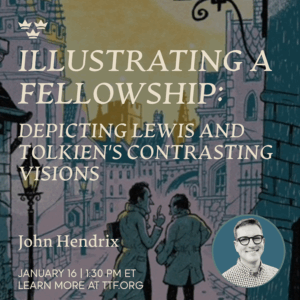Earlier this week, David Brooks wrote a fascinating column on young people’s moral lives, basing it on hundreds of in-depth interviews with young adults across America conducted by the eminent Notre Dame sociologist Christian Smith and his team.
The results, according to Brooks, were “depressing”—not so much because of how they lived but because of “how bad they are at thinking and talking about moral issues.” Asked open-ended questions about right and wrong, moral dilemmas and the meaning of life, what we find is “young people groping to say anything sensible on these matters. But they just don’t have the categories or vocabulary to do so.” What Smith and his team found is an atmosphere of “extreme moral individualism—of relativism and nonjudgmentalism.” The reason, in part, is because they have not been given the resources—by schools, institutions and families—to “cultivate their moral intuitions, to think more broadly about moral obligations, to check behaviors that may be degrading.”
This is part of a generations-long phenomenon. In his 1987 book The Closing of the American Mind, Allan Bloom wrote, “There is one thing a professor can be absolutely certain of: almost every student entering the university believes, or says he believes, that truth is relative.” And the university, Bloom argued, is unwilling to offer a distinctive visage to young people. The guiding philosophy of the academy is there are no first principles, no coherent ways to interpret the world in which we live.
But this is merely a pose. No one, not even a liberal academic, is a true relativist. Scratch below the surface and you’ll find them to be (morally) judgmental toward those who want to discriminate based on race, gender, or sexual orientation. They will likely have strong (moral) views on criminalizing abortion, restricting marriage to one man and one woman, anthropogenic global warming, water-boarding terrorists, rendition, Israeli settlements, profits for oil companies, and cutting taxes for the rich. The left is adamant: women have a “right” to an abortion and gays have a “right” to marry. These rights are viewed as a priori and inviolate. And no one, not even a progressive liberal arts professor, is morally indifferent to someone who wants to rape his wife, molest his children, and steal his iPad. It is fashionable to insist we don’t want to “impose our values” on others or “legislate morality.” But the reality is we do so all the time, on an endless number of issues, and no civilization could survive without doing so. The question, really, is which moral standards do we aspire to? What is the ethical code we use to judge ourselves and others?
In training our hearts and minds toward the good, there is quite a lot to work with. With the exception of a very few (like sociopaths), we all have a moral sense. We are all born with a conscience. We all believe (pace Richard Rorty) that some actions are inherently inhuman. And no one believes that what is right simply depends on individual taste or cultural circumstances, on subjective values, and what emerges in the privacy of your own heart (especially if the heart in question belongs to Mao, Stalin, or Pol Pot). Most people, in fact, play by the rules. They work hard, love their families, and are loyal to their country. They think courage and compassion are better than cowardice and cruelty. They’re just not sure why. Hence Brooks’ point about our lack of moral categories and moral vocabulary.
This didn’t arise ex nihilo. In the 1970s, influential figures in education like Sydney Simon and Lawrence Kohlberg argued for “values clarification” and “cognitive moral development,” believing the traditional moral education was essentially indoctrination—”undemocratic and unconstitutional.” (See this excellent 1978 Public Interest essay by William J. Bennett and Edwin J. DeLattre for more.) This was utter nonsense, of course; but it was also corrosive and had profound human and social consequences. You can’t promote ethical agnosticism and embrace nonjudgmentalism without there being moral ramifications. Because at some point, we all have to take a moral stand and embrace a moral cause. We have to believe in, and abide by, rules and precepts. We don’t have the luxury of living a life of perpetual moral confusion. C.S. Lewis put it as well as anyone when he wrote in The Abolition of Man, “We make men without chests and expect from them virtue and enterprise. We laugh at honor and are shocked to find traitors in our midst.”
One final thought: what is often lost in this debate is that human fulfillment and happiness isn’t found in a world stripped of moral beliefs. Despair, not joy, is found among those who believe in nothing, who find purpose in nothing, who fight for nothing. Because of human anthropology—because we are moral creatures, made in the image of God—we are meant to delight in His ways, to live lives of high moral purpose. All of us fail more often than we should. But we cannot give up on the aspiration; nor can we allow our hearts to grow cold and indifferent, unmoved by the beauty of moral excellence.
“Whatever is true, whatever is honorable, whatever is right, whatever is pure, whatever is lovely, whatever is of good repute, if there is any excellence and anything worthy of praise, let your mind dwell on these things,” St. Paul wrote. In our world, there is still excellence. There are still things worthy of praise. It’s time we once again dwell on them.
Peter Wehner is a senior fellow at the Ethics and Public Policy Center.

